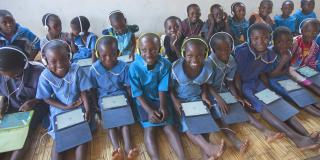
Lameck Dition Sandram, 47 from Malawi, volunteered in Sierra Leone where he worked on VSO’s Unlocking Talent (UT) project, applying his 25 years of experience in education, to train staff and collect real-time project implementation data. The project aims to improve students’ numeracy and literacy skills through digital educational technology.
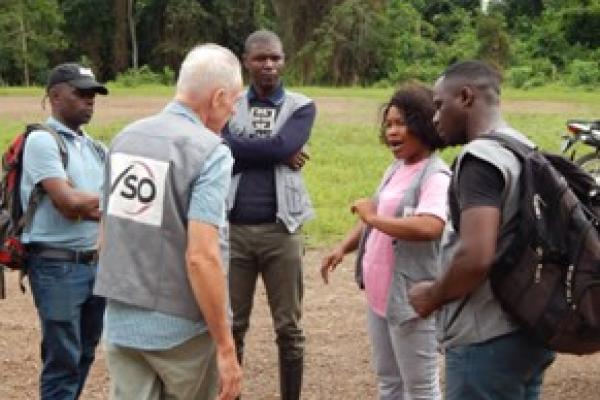
"I was reaching the retirement date of my governmental job when a colleague who had worked with VSO sent me a link to their website, and I was fascinated. I had already felt that it was time to serve others using the skills and experience I had gained from previous work, and my colleague’s involvement with VSO inspired me to join too.
There were lots of opportunities to volunteer in education, so I applied. I passed the interviews and necessary check-ups and got a placement in Sierra Leone as an Education Technology Specialist in the Unlocking Talent (UT) project.
My role on Unlocking Talent
During my placement, I was living right at the heart of Kailahun district. My main role on the project was to train teachers and ministry of education inspectors on how best they could integrate technology, focusing on the use of tablets and software for numeracy and literacy when teaching classes one and two (first two years of primary school). Since it was a research project, I also helped write a training module and collect data from intervention schools.
My work required collaboration with staff from Save the Children, Ministry of Basic and Senior Secondary Education (MBSSE) inspectors and the class one and two teachers. I also worked with community members, who took good care of the tablets.
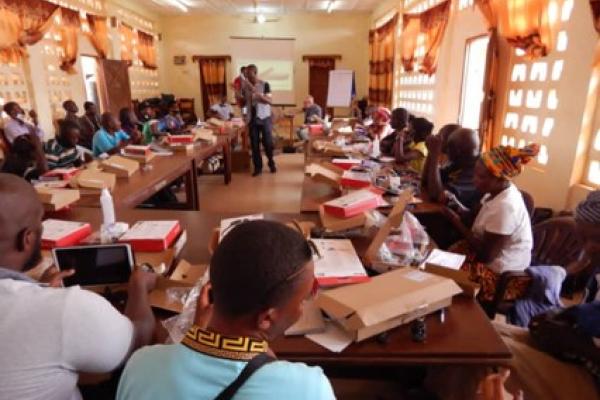
The project focused on twenty rural primary schools in Sierra Leone. It targeted the most remote and vulnerable schools, some of which had not been visited by Ministry of education inspectors for years due to their geographical locations. I worked in ten schools in the Kailahun district, but I also travelled to the Pujehun district at time, where the project was being implemented at ten additional schools.
Before joining VSO, I had 25 years of experience in education, from a primary and secondary teacher to a teacher trainer and educator. I had also obtained a master’s degree in education. These experiences and qualifications were of great help to my placement. While I was working as a teacher trainer, for example, I was given the responsibility of the college’s IT manager.
During that time, I got to work on the UT project, training teachers and monitoring how they were handling UT classes, as well as receiving VSO training myself so I could trouble shoot hardware and software issues for UT classes in the Learning Centres in Machinga.
Adapting to life in Sierra Leone
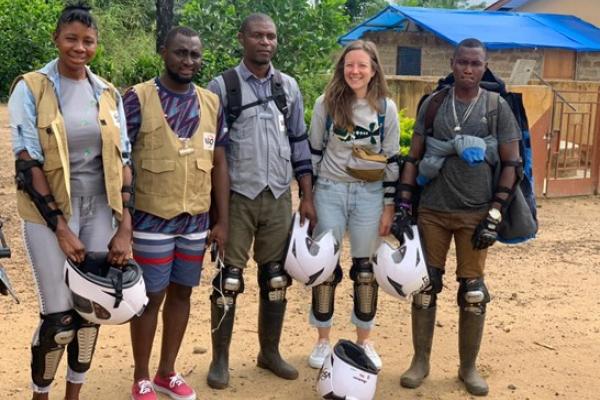
There were several differences between the work conditions of home and the placement in Sierra Leone. At home, I just had to travel seven kilometres, but on placement I had to travel for long distances to get to the targeted schools, the shortest distance being 64 kilometres and the furthest 100 kilometres away. Also, at home UT took place in purpose-built buildings and the team had over 70 members, whereas there were less than 20 members and the regular classrooms were used in Sierra Leone, which posed a big challenge for time management and the safety of the tablets.
My colleagues and I had to train teachers and MBSSE inspectors on what UT was all about and how they could use tablets to facilitate the teaching of numeracy and literacy. I also provided similar training in Pujehun. I then had to visit schools to collect data through lesson observation, mentor teachers or fix any challenge with the gadgets.
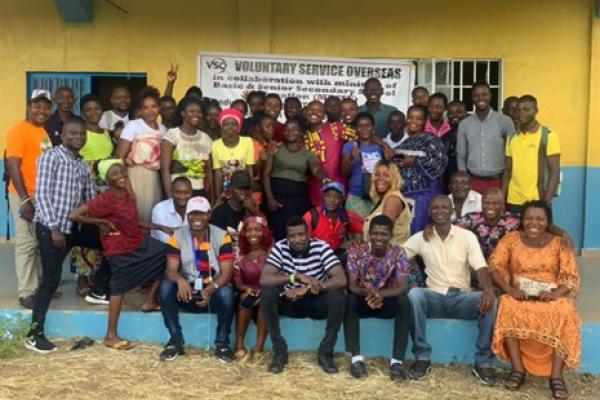
Given the distance of the schools, they had to be reached by motorbike and I had to stay overnight at times. Parts of the road were not in good condition which made for an uncomfortable ride. So, after returning from fieldwork, I would sometimes spend a day compiling my work and resting before returning again.
The biggest adjustment I had to make was around eating habits. At home I never ate food with pepper. When I arrived in Sierra Leone, I discovered that they could not cook food without pepper, so I gradually built up my tolerance. I also had to endure the absence of electricity: I had just two hours a day to charge my phones and laptop using electricity from a generator as the fuel for the generator was too expensive.
The biggest challenge was that most of the teachers I was working with were not trained as teachers. They were working voluntarily to help their brothers and sisters. As such, they might leave any time which created gaps in knowledge which were not easy to fill. The teachers also sometimes found the lessons being taught by the tablets challenging, which made it difficult for them to assist the learners.
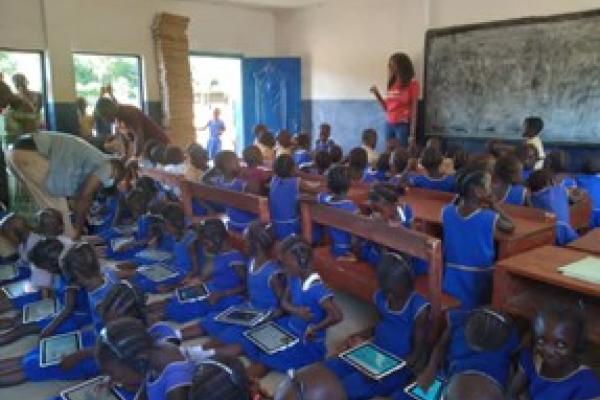
However, the use of tablets mitigated those challenges because the software used was designed to support learning even in the absence of a teacher. If a learner is able to follow the instructions from the tablet, he/she can learn individually, even if the school may lack teaching resources or experienced teachers, which makes it so vital to Sierra Leone. I pray for donors to come around and take the project to all parts of the country. The country really needs it.
Why I volunteer
I value my contribution to the birth of UT in Sierra Leone, having taken UT to the most remote parts of the country. When I was completing my placement, I felt that made an impact in the communities in the districts of Kailahun and Pujehun. Teachers and parents never dreamt of seeing their kids playing around with tablets just for learning. It brought happiness to their lives, and they welcomed the intervention wholeheartedly. Seeing how the kids were improving day in day out gave me a lot of satisfaction.
Through volunteering, professionals with various expertise and experience manage to reach excluded marginalised communities and alleviate the quality of their lives. In Pujehun these schools were never inspected and trained teachers who are signposted there refuse to go. Only local citizens and a few volunteers work in the schools. For them, VSO’s arrival is a blessing.
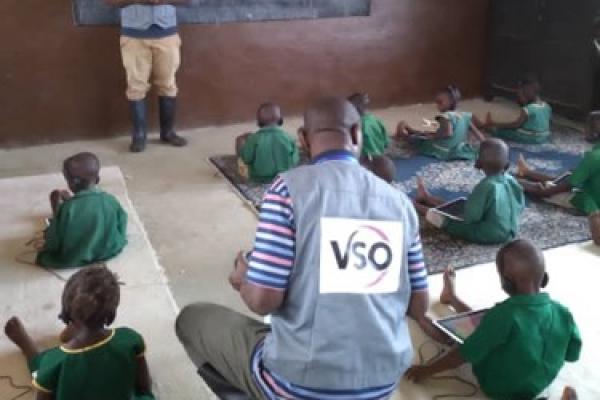
Volunteering in Sierra Leone advanced my life. It gave me the chance to improve my research and financial management skills. Before joining, I only had the theory knowledge but after obtained the practical experience of financial management thanks to my placement. I have also fine-tuned the project report writing skills. These are all great improvements in my career.
I can see the effort VSO puts in caring for people. A deliberate effort is made to ensure that both volunteers and the primary actors are protected from any kind of harm, and are well supported throughout the placement and after it’s over. For example ensuring volunteers are provided –post –placement support and re-settlement once they return back home, something that always done elsewhere.
You don’t need to be well off first to then be able to volunteer. Just spare some time, bring your skills, expertise and experience with those in need. Together we can change the world and make it a better place for everyone. Be ready to meet new people and build communities, gain knowledge and understanding of other ways of life, gain a sense of purpose and become happier. "
Volunteer with us
Inspired by Lameck's story? Explore our latest volunteering opportunities to find out how you can use your skills to make a lasting change through volunteering.
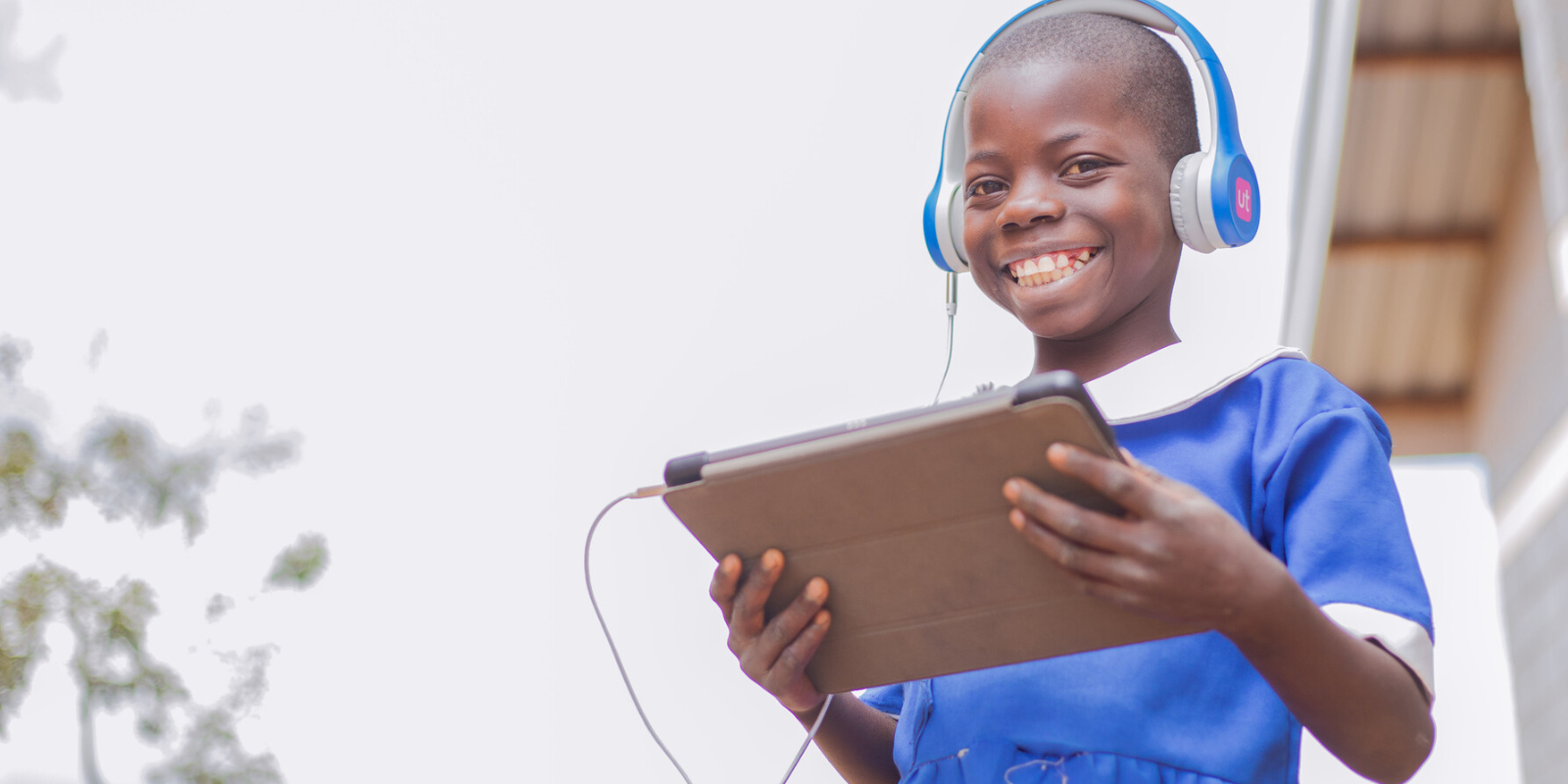
Support us with a donation
Read more

The two volunteers empowering girls and young women in Mozambique
Nelma and Carmirene and are two volunteers working on VSO's EAGLE project in Mozambique. For Nelma and Carmirene, education is not just about school, it is about meeting people where they are and using the right tools to challenging harmful norms. Here are their stories.

A ripple of change: how VSO volunteers are transforming communities
Every act of volunteering begins with a choice — a decision to act out of a desire to make a difference. Across the world, VSO volunteers are proving that one spark of action can ignite something much bigger.
Opening doors to safety, education, and a brighter future
For girls in Karamoja, the poorest region in Uganda, being forced into early motherhood is all too common. This Christmas, you can open the doors to Safety, Education, and a Brighter Future.
